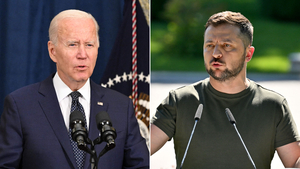Washington– The US House of Representatives approved a sweeping US$940 billion healthcare overhaul on Sunday in a two-step process that sends a Senate version of the bill to President Barack Obama for his signature and a package of changes sought by Democrats to the Senate bill.
The package of changes now go to the Senate for approval. The Senate is expected to take it up this week. If it passes unchanged it will then go to Obama for his signature. If any changes are made by the Senate, the package of changes will have to go back to the House for further action.
The legislation aims to extend coverage to 32 million uninsured people. Here are key provisions of the Senate-passed legislation and the proposed changes.
The legislation would require substantial insurance market reforms that would bar insurers from excluding people for pre-existing medical conditions and prevent them from arbitrarily dropping policy holders.
Insurance exchanges would be created in which small businesses and individuals without employer-sponsored coverage would be able to shop for coverage. Plans offered on the exchange would have to meet minimum benefit requirements.
The proposed changes would allow dependent children to remain on their parents’ health policies until age 26.
The Senate bill also requires insurers to spend at least 85 cents of every premium dollar on medical care in small group markets and 80 cents in large group markets. The proposed changes also would require Medicare Advantage insurers to spend at least 85 percent of revenues on medical care.
Individuals would be required to obtain health insurance. Those who fail to obtain coverage would face fines of up to 2.5 percent of income by 2016.
Firms with more than 50 workers who do not offer medical coverage could face fines of US$2,000 per full-time employee.
Federal subsidies would be provided to help people with incomes up to 400 percent of the poverty level purchase coverage on the exchange. Proposed changes would sweeten those subsidies for lower income people.
Medicaid, the government health insurance program for the poor, would be available to everyone with incomes up to 133 percent of the poverty level, which stood at US$10,830 for an individual and US$22,050, for a family of four. Many states have eligibility requirements below those levels.
The proposed changes would get rid of a special deal in the Senate bill that would have provided more money to Nebraska to cover costs of increased Medicaid coverage.
The final proposal makes some adjustments to the revenue measures in the Senate-passed bill.
The Senate bill included a 40 percent excise tax on high-cost health insurance plans. The proposed changes would delay implementation of the tax until 2018 instead of 2013. The tax would kick in on plans costing US$10,200 for individuals and US$27,500 for family coverage. A higher threshold is allowed for plans covering mostly women, older workers and retirees as well as those in high-risk professions.
The bill calls for raising the payroll taxes for Medicare, the government health insurance plan for the elderly and disabled, to 2.35 percent from the current 1.45 percent for individuals earning US$200,000 or more and for couples earning US$250,000 or more. The proposed changes would apply the tax at a rate of 3.8 percent to some investment income for those high-income groups.
The bill imposes fees on medical device manufacturers, insurance providers and brand-name pharmaceuticals. The proposed changes would delay implementation of those fees.
It also puts a 10 percent tax on indoor tanning services that use ultraviolet lamps goes into effect on July 1.
The legislation would freeze payments to insurers that provide coverage to Medicare patients in 2011 and begin reducing the subsidy in 2012.
It would also gradually close the gap in drug coverage for Medicare beneficiaries by 2020. Those who enter the coverage gap, the so-called doughnut hole, in 2010 will get a US$250 rebate. In 2011 they would get a 50 percent discount on brand-name drugs.




